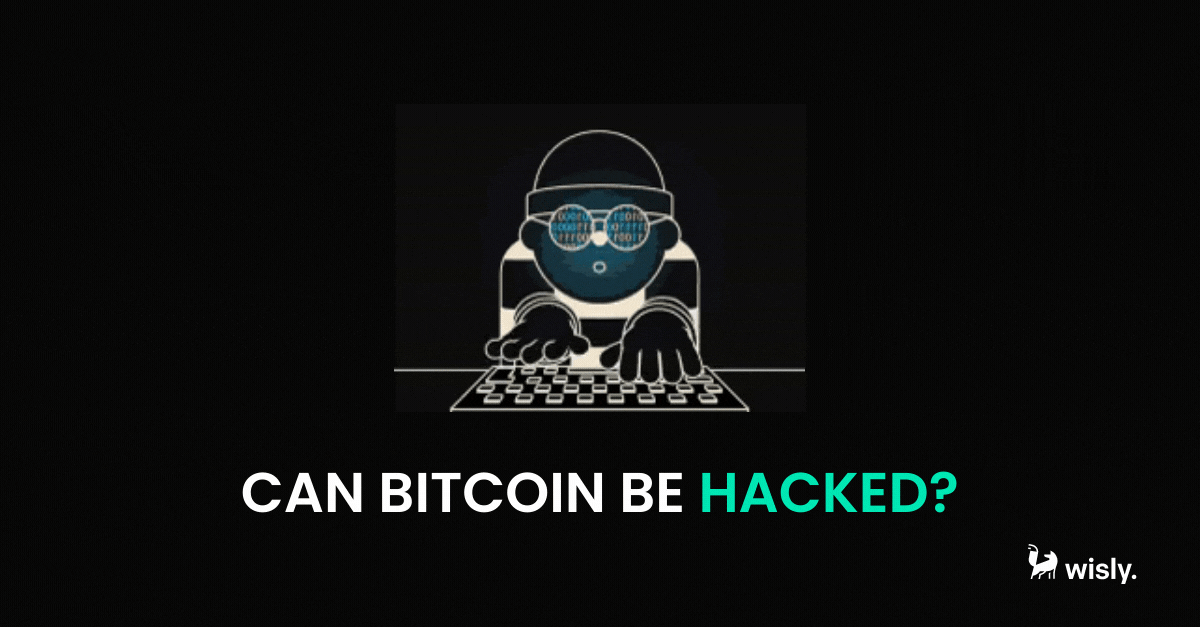Bitcoin has enjoyed unrivalled growth in the past two years and continues to attract investors from all corners of the globe. After hitting record highs of more than $60,000 earlier in the year, it then experienced a slide to under $30,000 but has shown fantastic recovery with its value sitting at just over $40,000 at the time of writing.
With all this attention from investors comes a lot of questions, a popular one of which is “Can Bitcoin be Hacked?” It’s understandable that investors, especially new ones, may be nervous about investing money into a digital asset that is inherently volatile. The good news is that Bitcoin is considered hack proof due to its innovative technology.
Bitcoin’s ecosystem

Bitcoin’s network is incredibly difficult to hack due to the blockchain technology that it is built on. Unlike traditional ledgers, Bitcoin’s blockchain is distributed which means that data is not stored on a central server but rather across a massive network of computers that constantly verify and check that all records are accurate.
All Bitcoin transactions are recorded in a digital ledger referred to as a blockchain, and it uses cryptography to secure all transactions on the network, making it almost impossible to breach. If hackers wanted to breach the system, they would have to own or control 51% of the network’s computing power, no mean feat for would-be thieves.
How do hackers steal Bitcoin?

For a hacker to steal Bitcoin, they would need to breach a large number of servers on the network to obtain information. As unlikely as a breach may be, hackers who gain access to 51% or more of the Bitcoin networks’ computing power (also called hashrate) may be able to mine blocks quicker than the rest of the remaining network combined, allowing them to insert malicious records in the blockchain. Achieving a 51% breach is extremely costly to perform as hackers would need an incredible amount of computing power to succeed with their plans.
While the blockchain network itself may be difficult to breach, hackers typically try their luck on interfaces, such as crypto wallets, where cryptocurrencies like Bitcoin are stored. These interfaces appear to be more vulnerable and hackers find creative ways to gain access to investor’s Bitcoin. While massive amounts of time and investment has gone into improving the security of wallets, they hackers work equally as hard to find ways to beat the system.
Phishing scams are very popular and are usually found in emails where investors give hackers access to their wallets unknowingly. These emails usually direct investors to fake websites that mirror the authentic ones, and fool users into entering their details to login.
SMS verification is another way that hackers attempt to access Bitcoin as they try to intercept SMS’s that come as part of the two-factor authentication process. These are usually stolen through wiretapping, SIM cloning or voice phishing where the hackers try to get details to access a crypto wallet.
To transact with a crypto wallet, investors need to have access to a Bitcoin public and private key. The user holds onto the private key which is used to digitally sign and thus authorize transactions. Public keys, which can be shared, are then used to validate the transaction and it’s signature.
Hackers try their level best to get these keys to gain access to crypto wallets through many creative methods. These include browser extensions, applications with spell checkers, and exploiting common vulnerabilities within systems.
Crypto mobile applications are also prone to being hacked due to their poor architecture and security loopholes. Hackers sometimes use aggressive tactics to gain access to the application, although they usually try performing unauthorised actions on your behalf or guessing your PIN as they can operate under the radar at the beginning.
Keeping your Bitcoin safe

Hackers are fond of gaining non-crypto related information about users to appear more genuine in their attempt to gain access to wallets. To keep your Bitcoin safe, you must be attentive to details like domain spellings and SSL certificates before you reveal any sensitive information through phishing emails. For two-factor authentication, you must be wary of foreign numbers and slight changes to the notifications that you receive through SMS.
In terms of access to keys, it is advisable to store your Bitcoin on cold wallets that are not connected to the internet as these are typically hardware devices that are not connected to the computer. Hackers usually have more success with hot wallets that are connected to the internet and operate off a centralised system. When it comes to mobile applications, it is best to confirm what security measures are in place for those applications before you start to use them.
Final thoughts
With such an overwhelming interest in Bitcoin will come more risks and challenges that investors must be cautious of. Cyber criminals are opportunistic and patiently wait for the right moments to exploit vulnerabilities and gain access to investors’ Bitcoin.
The good news is that lots of time and money has gone into strengthening security to protect the interests of both the Bitcoin blockchain and investors who use crypto wallets and exchanges. With that being said, any potential hack is dealt with swiftly in order to safeguard the system and its users. It is your responsibility, however, to take the necessary precautions to protect your Bitcoin from cyber criminals. Be alert and stay safe!
It is important to note that investing in Bitcoin and other cryptocurrencies is a risky and highly speculative proposition. This article does not provide recommendations, advice or guidance regarding cryptocurrency investments but is rather our opinion on such investments. Investors must conduct their own research and engage in the services of qualified professionals before making any financial and/or cryptocurrency investment decisions. We do, however, recommend established platforms like Wisly to monitor and analyse crypto investments.




